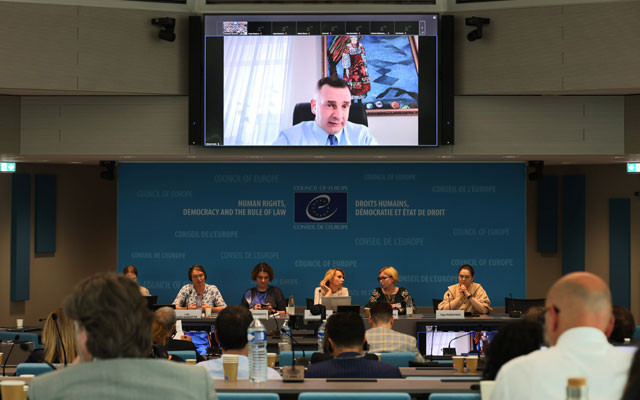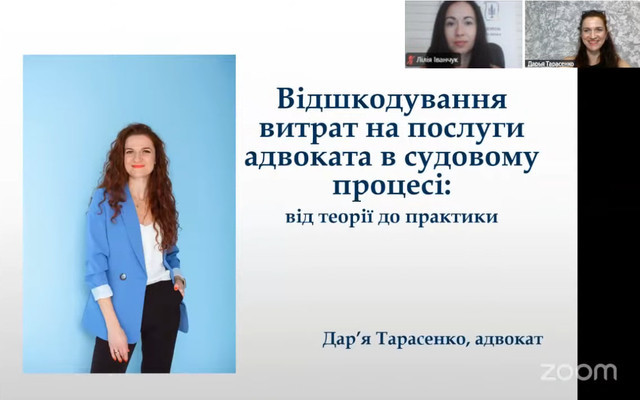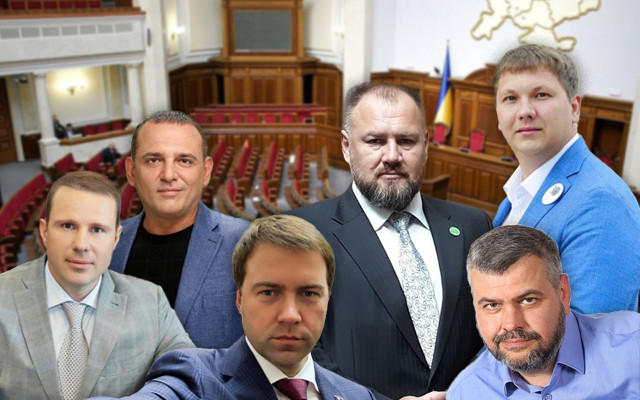The UNBA assessed the idea of increasing the liability period for ignoring requests

The inability of the state to ensure accountability for violations in the field of access to information, in particular for the late provision, non-provision, or provision of incomplete or inaccurate information in response to a lawyer's request, is not only a matter of freedom of speech but also a problem of access to justice.
The changes proposed by Draft Law No. 13332 of May 30, 2025, «On amendments to article 38 of the Code of Ukraine on administrative offenses to clarify the time limits for bringing to administrative responsibility for certain offenses», could help fix these problems.
Today, if an official fails to respond to a lawyer's request, violates someone's right to information or the right to appeal, or fails to comply with the lawful requirements of the Verkhovna Rada Commissioner for Human Rights, they can be punished under Articles 212-3 or 188-40 of the Code of Administrative Offenses. However, the law only allows three months from the date of the offense or from the date of its discovery, if it is ongoing.
During this time, it is necessary to:
- file a complaint;
- conduct an investigation;
- draw up a report;
- refer the case to court;
- hold a court hearing.
In practice, it is almost impossible to go through all these stages in three months, according to the UNBA Committee on Administrative Law and Procedure. Therefore, many cases are closed due to the expiration of the time limits without even being considered on their merits, and the guilty parties are not held accountable. This creates a situation of complete impunity for officials who violate the law and negates the preventive function of administrative responsibility, advocates explain.
Therefore, the draft proposes to extend from three to six months the period during which an official can be held administratively liable for violating the right of access to information or failing to comply with the Ombudsman's requirements.
The UNBA is convinced that the proposed changes are fully in line with international human rights standards, in particular the practice of the European Court of Human Rights.
Thus, in its judgment in the case of Társaság a Szabadságjogokért v. Hungary (2009), the ECHR recognized that a state's refusal to grant access to socially important information over which it has a monopoly may constitute an interference with the right guaranteed by Article 10 of the Convention for the Protection of Human Rights and Fundamental Freedoms. In its judgment in the case of Magyar Helsinki Bizottság v. Hungary (2016), it established criteria under which a refusal to grant access to information is considered an interference with freedom of expression.
In addition, Article 13 of the Convention guarantees everyone whose rights and freedoms have been violated the right to an effective remedy before a national authority. The ECtHR has repeatedly emphasized that a remedy must be effective not only in theory but also in practice. Its effectiveness requires that it be capable of preventing the violation or its continuation and of providing adequate compensation.
At the same time, a mechanism for bringing to justice that systematically fails to function due to excessively short limitation periods is a classic example of a «theoretical and illusory» rather than a «practical and effective» remedy. The lack of a real possibility to punish an official for violating the right to information (violation of Article 10 of the Convention) means that there is no effective remedy against this violation (violation of Article 13).
Officials, aware that the risk of being held accountable under Article 212-3 of the Code of Administrative Offenses is minimal, tend to refuse or fail to provide requested information, especially «inconvenient» information, more often and without justification.
The rational calculation of risks for them is obvious: punishment for refusal is unlikely, while providing information may lead to negative consequences (dissatisfaction of management, exposure of abuses).
Therefore, the draft law significantly increases the likelihood of liability and restores the preventive function of the law, encouraging officials to comply with the requirements of the legislation on access to information.
The full text of the UNBA's comments and proposals on draft law No. 13332 can be found at link.
Popular news

Announcements
The BCU has begun accepting documents from candidates for the Competition Commission for the selection of members of the HQCJ
The Bar Council of Ukraine announces the start of accepting documents from candidates who wish to be elected to the Competition Commission for the selection of members of the High Qualification Commission of Judges under the BCU quota.

Legislation
Venice Commission warned of risks of changes to disciplinary procedures for Ukrainian judges
The European Commission for Democracy through Law (Venice Commission) and the Council of Europe Directorate for Human Rights and Rule of Law are preparing an assessment of draft laws concerning the judicial system and the status of judges in Ukraine.

Announcements
Ukrainian advocates invited to Bonn for internship
Young Ukrainian advocates specializing in civil, commercial, and economic law have the opportunity to participate in an internship program in Germany. The program is organized by the International Legal Cooperation Foundation (IRZ) in cooperation with the Federal Bar Association and the German Bar Association.

Legislation
Declarations of integrity for judges and others: BCU approves conclusions on draft laws
Under the guise of restoring trust in the judiciary, repressive mechanisms of control over it may be introduced. This directly contradicts international experience and may lead to the degradation of the Ukrainian justice system.

Educational events
Ukrainian advocacy integrates HELP into the system of professional development
In recent years, the Ukrainian National Bar Association has become one of the Council of Europe’s key partners in implementing the HELP programme, an educational project aimed at developing the legal profession through training in European human rights standards.

Educational events
Reimbursement of expenses for legal services in court proceedings: from theory to practice
What are the pros and cons of claiming reimbursement of legal fees in court proceedings, what documents need to be submitted, how to object to the recovery of such costs, and when can the court reduce the amount?

Legislation
Those who equate advocates with clients will be fined – law passed
Public identification of an advocate with a client to whom such advocate provides professional legal assistance will become an administrative offense, and forms of interference in the activities of an advocate, for which liability is provided for in Article 397 of the Criminal Code, are detailed.

Abroad
UNBA submits comments on Portugal's immigration law
Viktor Arkhipov, the representative of the Ukrainian National Bar Association in Portugal, discussed with João Massano, the newly elected president of the Portuguese Bar Association, a number of issues concerning the legal status of Ukrainians in the country.
Publications

Ihor Kolesnykov A BRIEF SUMMARY REGARDING THE APPLICATION OF THE ORDER ON EXTENDED CONFISCATION IN LATVIA REGARDING FINANCIAL ASSETS OF…

Valentyn Gvozdiy WORKING IN A WAR ZONE

Lydia Izovitova Formula of perfection

Sergiy Vylkov Our judicial system is so built that courts do not trust advocates

Iryna Vasylyk Advocacy in the proclamation of Independence of Ukraine

Oleksandr DULSKY When we cross the border of the Supreme Anti-Corruption Court, we get into another department of the National Anti-Corruption…

Vadym Krasnyk The UNBA will work, and all obstacles and restrictions are only temporary inconveniences

Lydia Izovitova Interview with Lydia Izovitova on the occasion of the 8th anniversary of the founding of UNBA: We are the voice of t…
